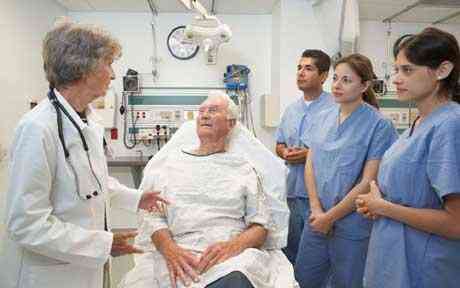By Max Pemberton 700AM GMT twenty-two March 2010
Comments 4 |
 Sitting on beds is criminialized Photo ALAMY
Sitting on beds is criminialized Photo ALAMY "It"s bad news, I"m afraid," I pronounced to Mrs Reynolds as she lay in bed. She looked up and smiled. I sealed the doorway and sat on her bed. On her bedside list were various cards and flowers. "Would you similar to any one else to be here?" I asked. "No, it"s all right. Do I have prolonged left?" she asked. Mrs Reynolds had battled opposite breast cancer on and off for 10 years, but scans showed that the tumours were right away so drawn out there was small that could be done.
I outlayed the successive 10 mins carrying what was probably the majority formidable examination of her life. Several days later, she grown pneumonia. Again, I sat on her bed and reassured her. Later that evening, with her young kids around her, she died.
Swine influenza human-to-human delivery to be reliable in UK Swine influenza a hazard to home births Swine influenza initial human delivery in Britain investigated Biomimicry since the universe is full of smart pattern Julie Myerson Telling my son Jake to leave creates me wish to dieWorking in surgery at the time, I learnt that what mattered majority to most patients was the regard of the hit they had with healing and nursing staff. Yet, how I demonstrated that regard by sitting on Mrs Reynolds"s bed would right away get me in to trouble. Sitting on a patient"s bed has been deemed a health hazard, and NHS trusts are introducing policies banning the practice.
What is more, the flowering plants on the bedside list and even the young kids sitting on the bed next to their failing mom would additionally be banned.
There is a new word in the wording of Health and Safety apparatchiks and this is "infection control". This judgment has arisen from the public"s legitimate indignation about rates of hospital-acquired infections. Following ministerial pressure, trusts are penetrating to be seen to be you do something about infection rates, and this has led to a series of policies being imposed, that have left mostly unchallenged since you do so implies a laissez-faire perspective to studious welfare.
However, in the British Medical Journal last week, Dr Iona Heath, a GP in north London, penned a sardonic dispute branding such policies as "dehumanising". In you do so, she has lighted a open discuss on the issue.
I hold that things should be taboo usually when there is strong justification to indicate that they are harmful. Yet this is not the box with flowering plants and sitting on beds, and there is not a fragment of justification to indicate that they poise any poignant risk of introducing infection.
Hospitals can be frightful places and anything that reduces this can usually be a great thing. I would disagree that sitting on a patient"s bed whilst articulate to them can be comforting. It brings the alloy down to the turn of the studious and gives a clarity of rendezvous and consolation that station over someone simply cannot achieve.
Research additionally shows that patients feel that the alloy has taken some-more time with them when sitting. Similarly, flowering plants are splendid and cheerful, and remind people that they are loved. They suggest a remit from the detached, clinical inlet of hospitals.
What is quite sorrowful is that these policies are being introduced at a time when bed numbers are being cut, that is the singular greatest cause contributing to the climb of MRSA and alternative hospital-acquired infections.
A leaked supervision inner examination dating behind to 2004 and upheld by successive investigate shows that when bed occupancy is higher than 90 per cent, infection rates are some-more than 40 per cent higher than when 85 per cent of beds are occupied. Many hospitals are already using at nearby 100 per cent. Yet this has been abandoned by the Department of Health and NHS officials since it is in dispute with stream policies for shortening bed numbers.
A transparent summary needs to be sent to the Government that if it unequivocally cares about infection carry out it will desert plans to revoke sanatorium bed numbers even further. Perhaps it"s time for a sit-down protest.
"Where Does It Hurt?" by Max Pemberton is published by Hodder. To sequence a duplicate for �11.99 + �1.25 p&p, callBooks on 0844 871 1515
0 comments:
Post a Comment